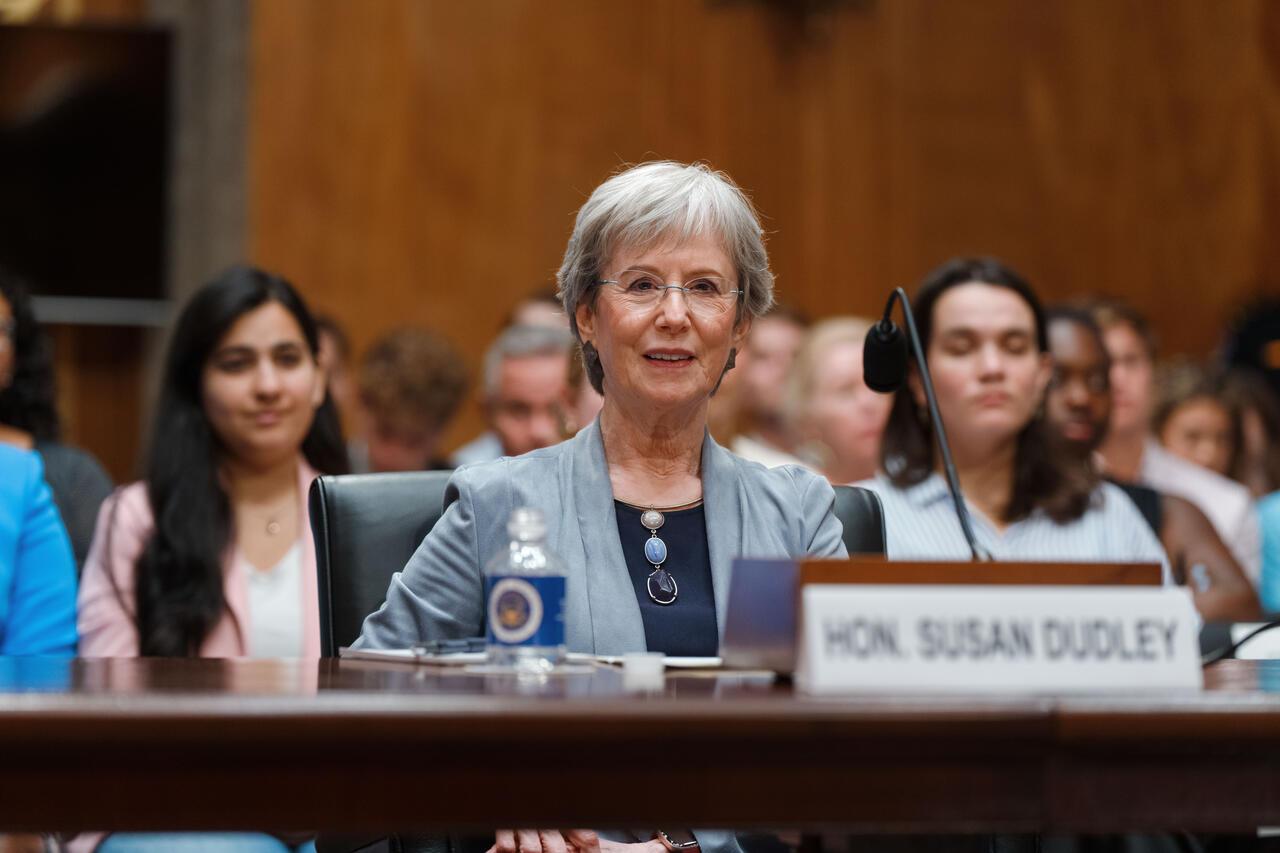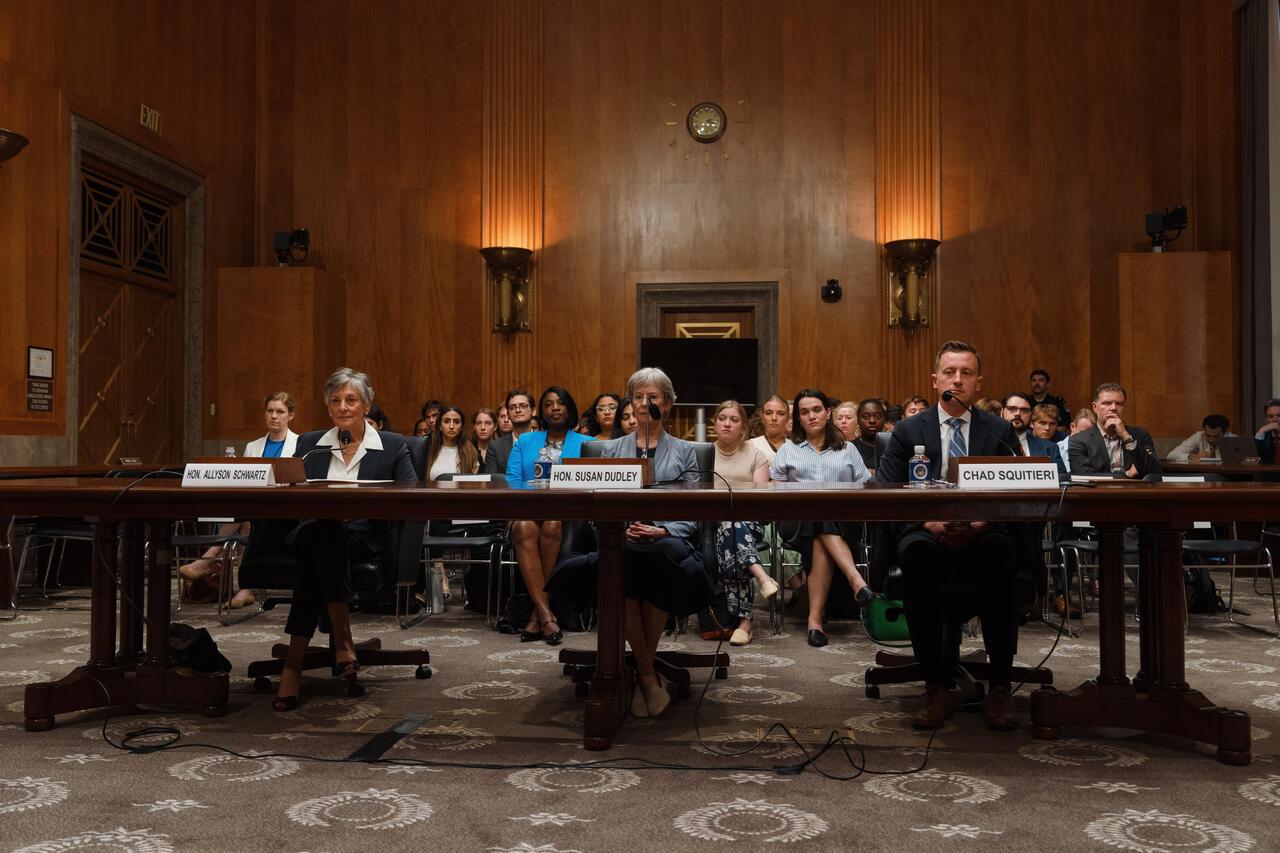Hearing: The Future is Loper Bright: Congress’s Role in the Regulatory Landscape
Professor Susan Dudley testified at the Senate Homeland Security and Governmental Affairs Committee
Regulatory Studies Center founder and Trachtenberg School Professor Susan Dudley testified July 30 before the Senate Homeland Security and Governmental Affairs Subcommittee on Border Management, Federal Workforce and Regulatory Affairs on changes to Congress's role in the regulatory landscape in light of recent Supreme Court decisions.
Senators called on Congress to write clearer laws in the wake of Loper Bright Enterprises v. Raimondo, the 2024 Supreme Court decision that overturned the longstanding doctrine of "Chevron Deference" which gave federal agencies the benefit of the doubt when interpreting statutes.
(Photos courtesy of Senate Homeland Security and Governmental Affairs Committee)
Dudley was joined by fellow witnesses Allyson Schwartz, a former Congresswoman and Senior Fellow with the Bipartisan Policy Center, and Chad Squitieri, Assistant Professor of Law at Catholic University. Dudley recently helped plan a workshop of the National Academies of Science, Engineering and Medicine that explored the implications of recent Supreme Court rulings for agency decision-making. She also served on the Bipartisan Policy Center Working Group on Congress and the Courts and contributed to its report and recommendations released in March 2025. Schwartz was also a member of the Bipartisan Policy Center working group.
"Ambiguity is no longer a shield to allow administrative agencies to determine what the law means," said subcommittee chair Senator James Lankford (R-Oklahoma). "We must examine the tools of Congress to rein in the regulatory overreach and provide a clear and stable framework for Americans to live and do business free of the ever-shifting whims of any agency decision in Washington," Lankford added.
Dudley’s testimony acknowledged that the new legal landscape places greater responsibility on Congress to write less ambiguous statutes that more clearly recognize the different considerations—legal, scientific and policy—that go into writing effective rules. She recommended that by writing statutes that require agencies to lay out their judgments and assumptions transparently, explicitly authorize them to weigh important tradeoffs, and require better ex-post evaluation, Congress can ensure that regulatory decisions are more transparent, accountable and grounded in both sound science and legitimate policy judgment.
Senators and witnesses discussed additional approaches to better defining the roles of Congress, the courts, and administrative agencies in the regulatory process through tactics including developing a vocabulary of words Congress should avoid using in legislation because they are vague, such as 'appropriate' and 'reasonable.' Another recommendation sought to establish a Congressional counterpart to the White House Office of Information and Regulatory Affairs (OIRA), similar to how the Congressional Budget Office and the Office of Management and Budget advise their respective branches on fiscal matters.
Read Susan Dudley's full Senate testimony







